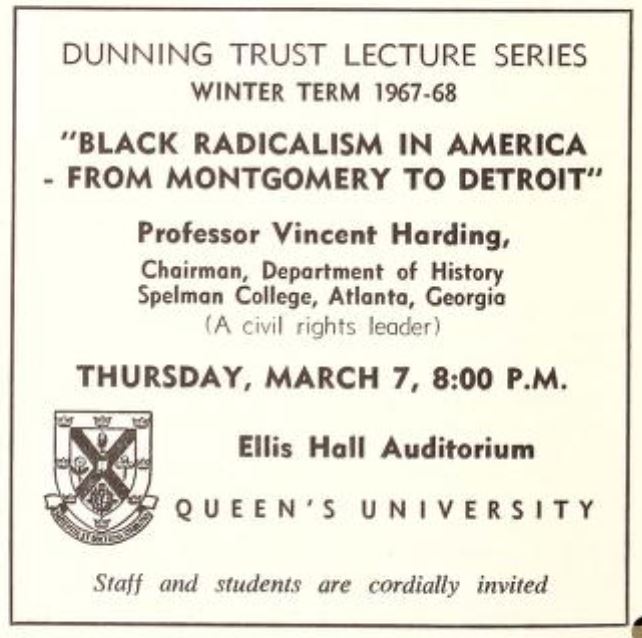
Vincent Harding was a theologian, historian of Black America, and the Chairman of the Department of History at Spellman College in Atlanta, Georgia. Over the course of his career, he taught at University of Pennsylvania, Temple University, Swarthmore College, Iliff School of Theology, and Pendle Hill Quaker Center for Study and Contemplation. His publications include African-American Christianity: Essays in History, Martin Luther King: The Inconvenient Hero, and There Is a River: The Black Struggle for Freedom in America. Harding was also an active civil rights leader involved in the Albany Movement during which he was arrested in July 1962 for leading a demonstration at Albany City Hall. At the sixth annual Southern Christian Leadership Conference convention in Birmingham, Alabama, he led a workshop on nonviolence as an approach to social change. He protested the Vietnam War and was also involved in the Greater Atlanta Peace Fellowship, which protested the proliferation of nuclear arms. In 1997, Harding and his wife founded Veterans of Hope, an initiative on religion, culture, and participatory democracy that emphasizes nonviolent and grassroots approaches to social change.
In his Dunning Trust lecture, Harding described the situation of the Civil Rights Movement in the United States, especially the growing belief that armed liberation struggle was the solution to inequality. Despite SCOTUS rulings to end segregation and the Civil Rights Act, and despite attempts to protest ‘politely’ in the March on Washington, anti-Black racism remained a strong force in American society. The summer of 1967, Harding said, showed that radical violence could immobilize major cities and, under the leadership of men like Stokely Carmichael, force progress where more moderate actions hadn’t. As an admirer of Malcolm X, Harding articulated his belief that there was a need for direct and immediate action to further racial equality, quoting Langston Hughes’ question “what happens to a dream deferred? Does it rot or does it die or does it explode?
Harding’s Dunning Trust lecture was on March 7, 1968.